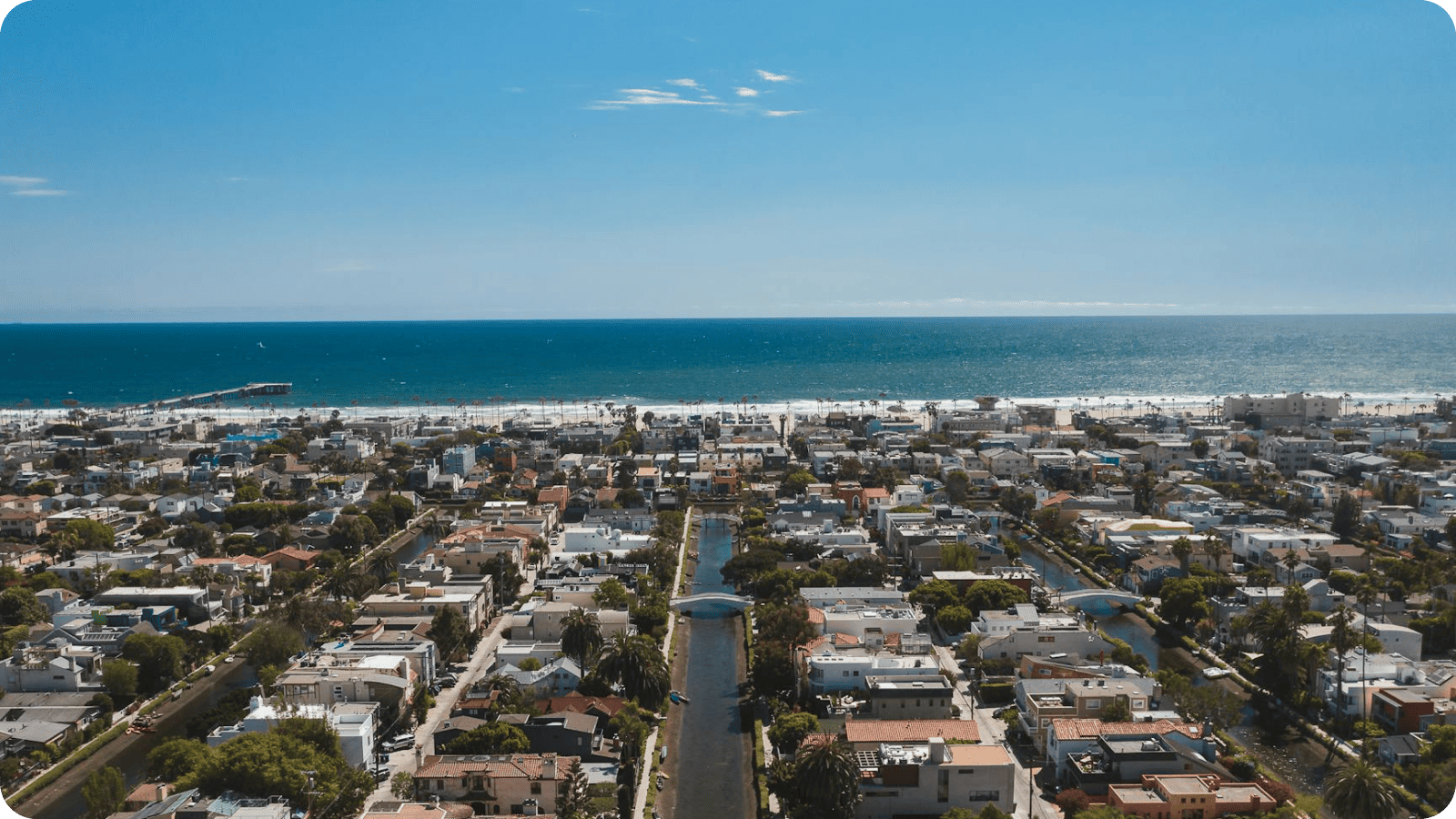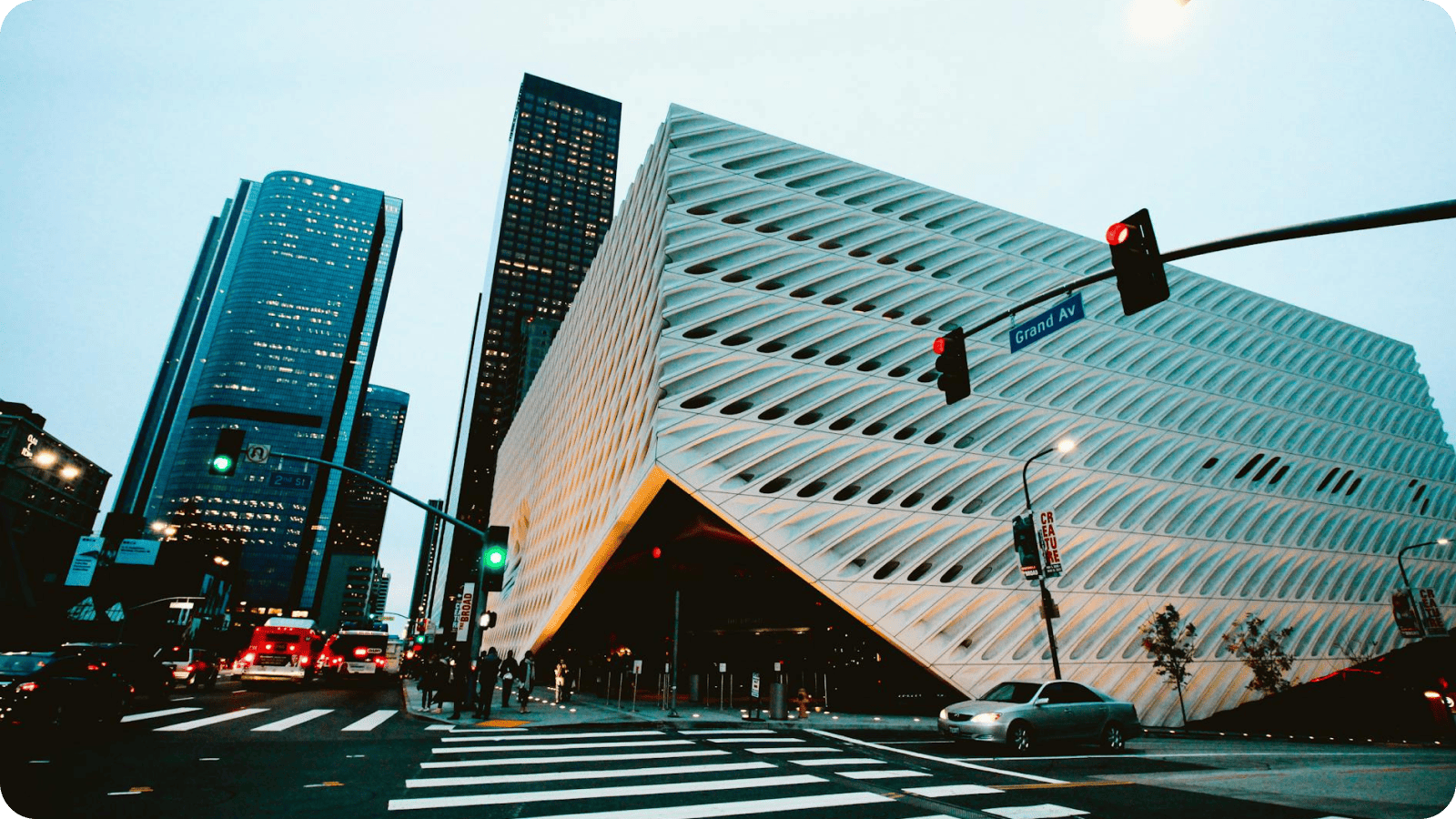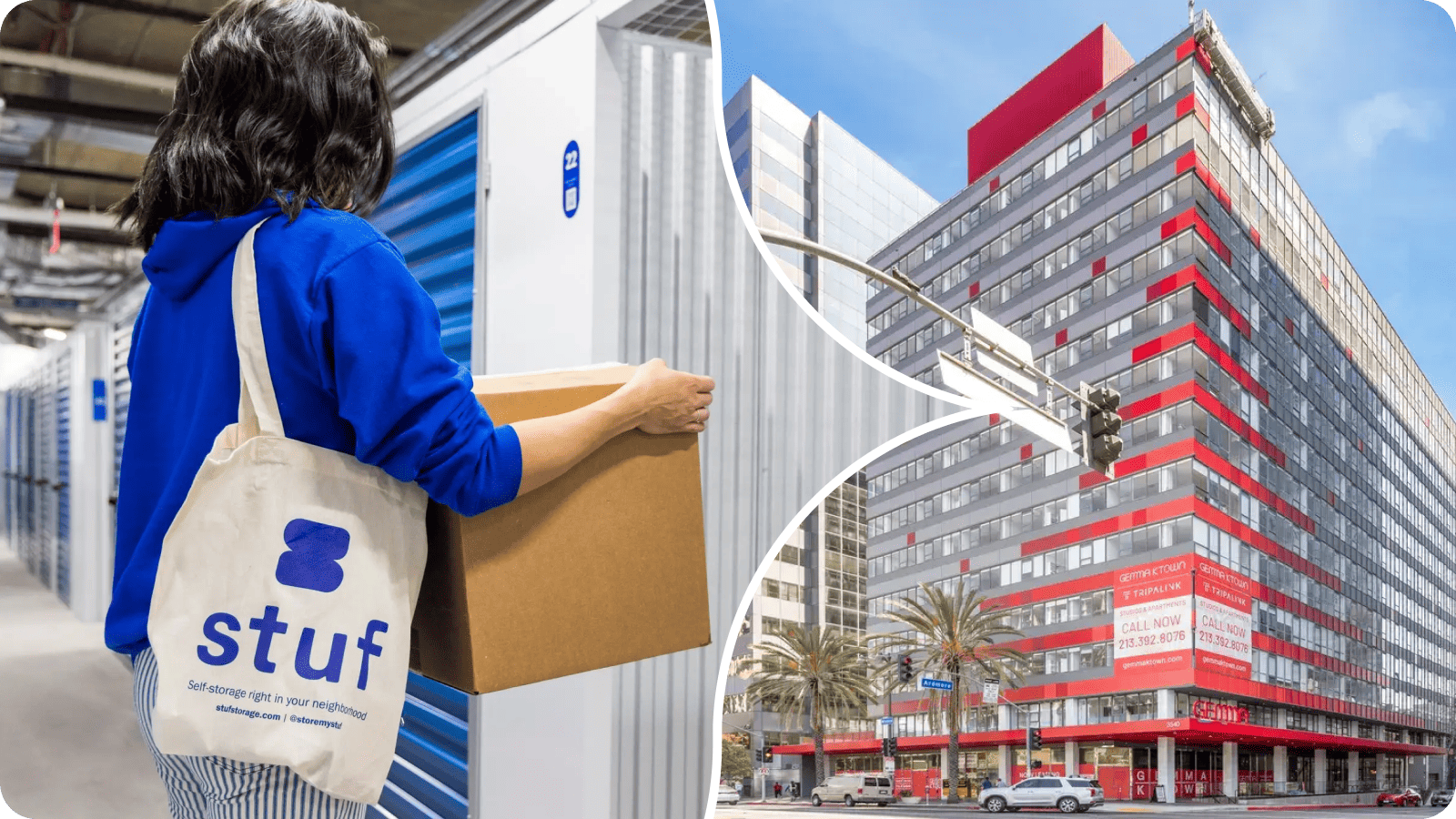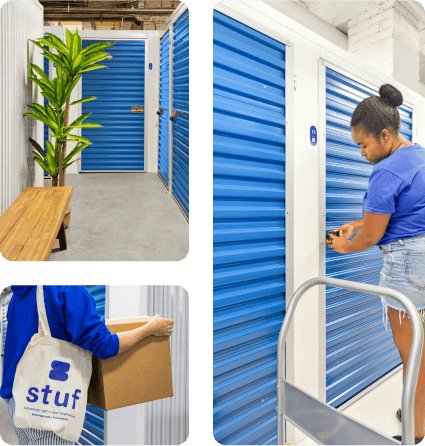Los Angeles is a character in its own right. Some people come here for the big-screen dreams, others for the laid-back beach mornings, and many simply for the weather that rarely dips below hoodie season.
But ask anyone who’s lived here long enough, and they’ll tell you: LA will surprise you. Sometimes in ways you’ll love, sometimes in ways that make you question why you didn’t do more research before packing your bags.
If you’re planning a move to Los Angeles, the glossy postcards won’t be enough to prepare you. But, don’t fret. This guide will walk you through the essentials, so that when you land in LA, you’re ready for more than the palm trees and neon lights.

Top 10 Things to Know Before Moving to LA
LA is as exhilarating as it is overwhelming, and the little details you know ahead of time can make all the difference between struggling to adjust and truly thriving here. Here are ten essentials every newcomer should keep in mind before making the big move.
-
LA is pricey: Plan for rent, taxes, and “little” fees
It’s no secret that LA is expensive, and rent will likely be your biggest expense. As of July 2025, the average rent in the area is $2,768. That’s before you factor in utilities, parking, and California’s taxes.Sales tax in the City of LA is typically 9.75%, and the state’s progressive income tax can take a noticeable bite out of paychecks, especially for higher earners.
The hidden costs add up too:
- Parking permits
- Gas
- Car insurance
- Health insurance
- Street-sweeping tickets
So, before moving, map out a realistic monthly budget that includes rent, utilities, transportation, and a cushion for the extras.
-
Neighborhoods feel like different cities
Picking a neighborhood in Los Angeles is like choosing your own mini city. Each area has its own personality:
- Santa Monica offers beach-town vibes
- Silver Lake and Echo Park attract creatives
- Valley trades cooler temps for more space
- Downtown or Hollywood offer urban energy with walkable cores
However, when choosing a neighborhood, your criteria should go beyond aesthetics. Pay attention to building details. Older multi-unit buildings often fall under LA’s Rent Stabilization Ordinance, which limits annual rent hikes.
Additionally, consider your commute. LA traffic makes even short distances feel long, and that can make a huge difference in the long term.
Pro tip: Visit neighborhoods at different times of day, drive (or ride transit) during rush hour, and compare how the vibe fits your lifestyle when looking for a place to rent.
-
The weather is great, but not perfect
Yes, LA’s sunshine is legendary. With 280+ sunny days a year and average highs in the mid-70s°F, it’s easy to see why people call it paradise. But you’ll quickly notice microclimates. For instance, while Venice stays breezy and cool, the Valley can spike over 100°F in summer. Even coastal mornings often start with “June Gloom” or heavy marine layer fog.The upside? You rarely need a heavy winter coat, and outdoor living is part of everyday life. However, energy bills can creep up if you need constant AC in hotter inland areas.
So when packing, add layers and prepare for a mix.
-
LA traffic is as real as they say
You might’ve heard all the LA traffic jokes, but nothing really prepares you for the real thing. In the area, congestion is part of daily life. According to INRIX’s 2024 traffic scorecard, this equates to LA drivers losing about 88 hours to traffic in a year, which is more than a full work week.This means that a 10-mile commute could take 20 or 90 minutes, depending on traffic that day. The trick is to plan around it, which could mean adjusting your schedule to avoid these peak jams.
Public transit exists, but unless you’re near a Metro rail line, you’ll probably need to rely on your car.
Pro tip: Test drive your commute during rush hour before signing a lease.
-
Parking is its own learning curve
Parking in LA deserves its own rulebook:
- Residential neighborhoods often require permits
- Metered spots in busier areas can be costly
- Miss one street-sweeping signs and you’ll rack up expensive tickets fast
If you’re moving into an apartment, check whether parking is included. Many older buildings don’t offer it, and garages can add $100–$300/month to your bills.
You can check out apps like SpotHero for short-term parking, but day-to-day life is easier when you lock in a spot at home.
-
Storage space is highly limited in LA apartments
The average apartment size in LA is 818 square feet. And they don’t come with much storage. Closets are small, basements are rare, and garages often double as living spaces. So, if you’re relocating with bulky furniture, holiday decorations, or seasonal gear, you’ll want a plan.
One of the best courses of action is renting a storage unit. Companies like Stuf Storage offer secure, flexible spaces across LA that you can access via smartphone. The best part is that their units are often found in highly accessible spots in the city such as Milford St, Wilshire Blvd, and Ardmore Ave. No long drives or commute required.
Rather than cramming all your things into your living room or paying inflated rent prices for extra space, renting a self-storage unit can be your breathing room.
Still unsure about how to find the best storage company for you? Check out our guide on how to choose the right storage facility for your needs.
-
LA’s job market is wide but competitive
Los Angeles has one of the largest economies in the U.S., with strengths in entertainment, tech, health care, aerospace, and creative industries. But with opportunity comes competition.If you’re moving without a job lined up, cushion your finances for a longer search.
Pro tip: Network, network, network. Industry events, alumni groups, and even casual coffee shop connections often lead to opportunities.
-
Diversity is LA’s biggest strength
The City of Los Angeles is home to more than 3.9 million people, and over 185 languages are spoken here. That diversity shapes everything from food (think tacos, Korean BBQ, Persian bakeries) to neighborhoods, festivals, and even how people define community.For newcomers, this is one of the most exciting parts of moving here. Exploring the different cultural pockets, from Little Tokyo to Thai Town to Boyle Heights, gives you the sense of traveling the world without leaving the city. However, this also comes with the responsibility of learning how to respect traditions and navigate differences.
-
The lifestyle is active and outdoorsy
The mild climate of the area makes it easy to stay active outside. So you’ll often find people from all walks of life hiking Griffith Park trails before work, surfing in Malibu on weekends, and biking along the Santa Monica boardwalk year-round.But don’t let the wellness reputation fool you. Fast food drive-thrus and late-night taco trucks are just as much part of LA life. It’s about balance, and you’ll find both extremes here.
-
Safety and livability vary by neighborhood
Los Angeles is massive and that means “safety” isn’t a one-size-fits-all answer. Some neighborhoods like Brentwood, Pasadena, and Burbank are known for being family-friendly and walkable, while others might feel less secure depending on time of day or housing density.The great news is that the LAPD publishes crime maps, and community forums like Nextdoor or local Reddit threads can give you a sense of what daily life is really like.
-
LA always has something going on
Free concerts at the Santa Monica Pier, Dodgers and Lakers games, comedy shows in West Hollywood, or art walks in Venice — there’s something for every budget and mood in LA. The weather helps too, since outdoor events are year-round. But here’s the catch: things sell out fast, and traffic can derail spontaneous plans.Pro tip: Keep a running list of events you’re interested in and plan weekends around them.
-
Finding housing takes strategy, not luck
LA’s rental market moves quickly, with competitive showings and high demand in popular areas like Santa Monica or Highland Park. This means you need strategy going in.- Keep an eye out on platforms like Zillow, HotPads, and even Facebook housing groups.
- Have documentation ready (proof of income, references, and your credit report)
- Have backup options
Pro tip: Invest in storage solutions like Stuf Storage during the transition. This way, you can keep your belongings safe while testing neighborhoods or waiting for move-in dates.
-
Earthquakes are common, but don’t panic
The prospect of occasional earthquakes might sound terrifying. The reality? Most quakes are small tremors you barely notice. Still, preparedness is part of LA life.Many apartments are retrofitted for safety, and the city even has the MyShake app to give early warnings.
Keeping an emergency kit with water, flashlights, and first-aid supplies is also smart to helps you feel secure. Remember, you don’t have to live in fear, but you do have to respect the reality of living on the San Andreas Fault.
-
Making friends takes patience
Unlike smaller cities where friendships form quickly, in LA it can take time to build a solid circle. Locals often joke about the “two-year rule” saying it takes about that long to feel truly settled socially. But once you find your community, whether through work, fitness, arts, or niche hobbies, LA friendships tend to be strong and long-lasting.

The Hidden Challenges of Moving to LA Newcomers Don’t Expect
Even if you’ve read every guide and done months of research, there are parts of living in Los Angeles that don’t fully sink in until you’re here. These aren’t deal-breakers, but they can catch newcomers off guard and shape how quickly you settle in.
Let’s pull back the curtain on some of the lesser-talked-about realities of LA life.
-
A car culture with car anxiety
In LA, cars are part of the culture. Unfortunately, auto theft is common, with catalytic converter theft especially on the rise. Los Angeles County even ranked as the top county for auto thefts in 2024.Before moving, budget for secure parking, steering locks, or even a vehicle alarm system if your car doesn’t already have one.
-
Wildfires air quality can be widespread
Wildfires are part of Southern California’s reality, and poor air quality can spread across the city even if you’re not near the flames. So stock on N95 masks, a small air purifier, and stay updated on AQI alerts to avoid health issues. -
The culture shift can be jarring
LA prides itself on openness and diversity, but adjusting to how people network and socialize can be disorienting. Some newcomers, especially from more reserved cultures, often describe LA’s self-promotional communication and casual networking vibe as a shock. -
Scammers are more common than you’d think
Housing scams, fake listings, and bait-and-switch showings are common in competitive rental markets like LA. Protect yourself by touring properties in person, verifying landlords or management companies, and never wiring money without a signed lease. -
Having no AC is common
Some LA apartments, especially older ones, don’t come with air conditioning, even in neighborhoods where summer temps hit 100°F. Always confirm whether AC is included before signing a lease, and factor in the cost of portable or window units if not.
What to Prepare Before Moving to Los Angeles
Making the leap to Los Angeles involves preparing for a lifestyle shift that can catch newcomers off guard if they don’t plan ahead. Here are some essentials to sort out before the big move.
-
Budgeting beyond the basics
Various locals from guides and forums agree that you need to have at least $4000 - $10,000 prepared before making the move to LA. Aside from the relocating and rental costs, the cost of living in the area is another significant factor to consider.You’ll also want to budget for:
- Gas
- Parking
- Higher utility bills
- Groceries
- Occasional takeouts
Even with a job lined up before you arrive, having these savings can help you adjust comfortably to LA life.
-
Renting vs buying in a competitive real estate market
Housing in Los Angeles is notoriously competitive. Most people start off renting because the market moves fast, deposits add up quickly, and buying requires serious financial footing.Before relocating to Los Angeles, decide what makes sense for your situation. If you’re renting, prepare your paperwork beforehand and get ready to make quick but sensible decisions. Apartments here can be taken within a few hours or a day of listing.
-
Timing your move
Timing your relocation can make a huge difference towards how smoothly the process goes. Regarding seasons, spring and fall tend to be friendlier on both your stress levels and moving budget.However, you also have to consider career timing. While LA holds abundant opportunities, it’s still best to line up a job before you arrive (or at least having a transition plan) to take the financial pressure off.
-
Planning your move transition
One trick newcomers use to reduce stress? Temporary storage.Having a storage solution ready means you don’t have to cram everything into your new place on day one. Seasonal clothes, extra furniture, or even hobby gear can be kept out of the way so your apartment feels livable and uncluttered from the start.
Companies like Stuf Storage offer flexible storage options in LA neighborhoods, making it easier to settle in at your own pace without tripping over boxes in your new space. With Stuf, you can also choose from various storage sizing and upgrade or downgrade as you need to.
Discover more reasons how renting a self-storage can make your move more seamless in our guide.
-
Healthcare and everyday essentials
Doctors, dentists, and specialists book out quickly in Los Angeles. Setting up your healthcare providers in advance or at least understanding which clinics and hospitals are near your new neighborhood helps avoid stressful surprises laterIt’s also smart to figure out where your everyday essentials are (grocery stores, pharmacies, gyms) before you move, so you’re not Googling frantically when you’re already exhausted from unpacking.
Frequently Asked Questions About Moving to LA
-
Do I need a car in LA or can I live car-free?
A car makes life easier in LA, but some neighborhoods like Downtown, Santa Monica, or Koreatown are manageable without one if you rely on transit and rideshares. -
How bad is LA traffic and when should I plan around it?
Traffic is consistently heavy, with rush hours typically between 7–10 a.m. and 3–7 p.m. -
How expensive is living in LA?
The cost of living in Los Angeles is about 50% higher than the U.S. average with housing eating the biggest chunk. -
How much should I save before making the move?
Be prepared for the first month’s rent, a security deposit (often equal to a month’s rent), and application fees. -
What's the typical commute time in LA?
The average commute is 30–40 minutes, but it can stretch much longer depending on your route and traffic. -
How’s the weather in LA?
Expect year-round sunshine, occasional smog, wildfire seasons in late summer, and noticeable temperature shifts between coastal and inland areas. -
Should I get renters insurance, earthquake preparedness, or storage from day one?
Yes, renters insurance is inexpensive, earthquake kits are a must, and storage can help if your apartment is small or you’re still settling.

Ready to Make the Jump to LA? Make Your Move Smoother with Stuf Storage
Relocating to Los Angeles is more than just a change of address. It’s adjusting to a new pace, culture, and lifestyle. The best way to make the transition smoother is by planning ahead: know your budget, pick a neighborhood that matches your lifestyle, and be realistic about commuting and space.
And if space is the one thing you’re short on, Stuf Storage can help bridge the gap. With flexible, secure storage options right in the city, you can keep your belongings safe and accessible while you get fully settled into LA life.









